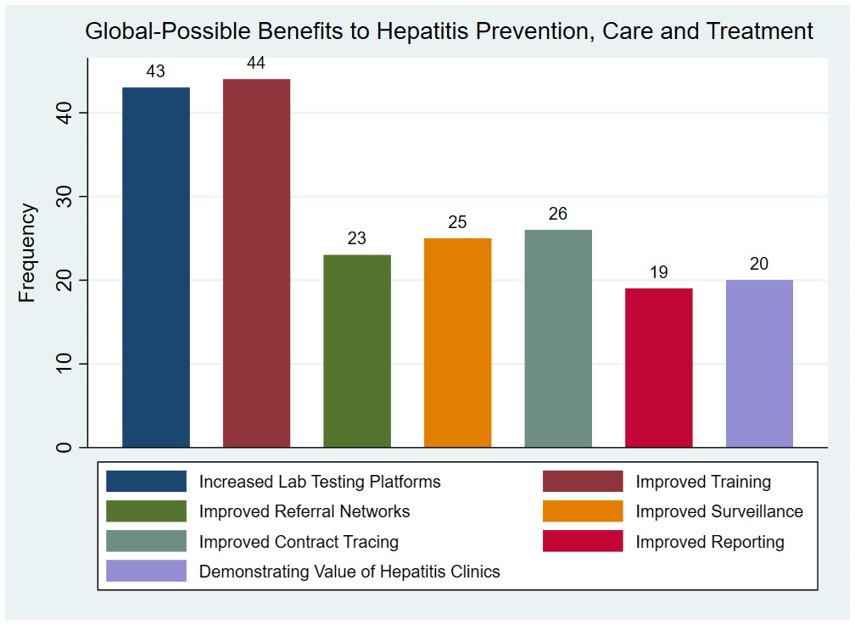Global survey shows impact of COVID-19 response on hepatitis prevention care and treatment

In the wake of the COVID-19 pandemic, several liver associations recommended certain changes in hepatitis clinical care to mitigate transmission risks for severe acute respiratory syndrome coronavirus 2 (SARSCoV-2), the causative agent of COVID-19. A follow-up survey was conducted and published.
About the follow-up survey
A survey of clinicians and program managers was then conducted to assess mitigation strategies deployed to reduce transmission and the changes in access to hepatitis testing and treatment services. This 53-question survey, led by Coalition for Global Hepatitis Elimination (CGHE) and partners* including EASL, was translated into French and Spanish, and distributed digitally.
Survey findings show challenges and opportunities
The results of this survey, drawn from responses of 103 clinicians and program managers from 44 countries, reveal both challenges and opportunities for hepatitis care introduced by the response to the COVID-19 pandemic.
The emergence of COVID-19 resulted in an immediate decrease in patients receiving hepatitis B (HBV) and hepatitis C (HCV) testing and treatment. Others have reported similar declines. Although most respondents to the survey reported improvements in the number of patients receiving these services, ongoing monitoring can assess whether these improvements are sustained particularly during surges of COVID-19 in communities.
Respondents identified several aspects of the COVID-19 response that are potentially improving hepatitis care. Increases in the capacity of laboratory testing (47%) and improved health worker training (48%) were the most commonly identified potential benefits.
Global possible benefits to hepatitis prevention, care, and treatment
This graphic illustrates the most commonly reported benefits to hepatitis prevention, care, and treatment as a result of infrastructure and practice changes brought on by the COVID‐19 response among the 91 respondents identifying benefits.
Credit: Clinical Liver Disease, Volume: 17, Issue: 1, Pages: 41-46, First published: 01 February 2021, DOI: (10.1002/cld.1088)
The survey addressed four areas:
- HBV and HCV services delivered before the emergence of COVID-19, during the month most heavily impacted by the pandemic and the month of survey completion
- the mitigation strategies deployed to safely deliver hepatitis testing and treatment services
- respondents’ participation in the COVID-19 response, and
- perceived benefits to hepatitis systems from the response to COVID-19.
*The partners were Hepatitis ECHO network USA, Hepatitis ECHO network Africa, AASLD Hepatitis Elimination Task Force, Canadian Association for the Study of the Liver, EASL, and CGHE. The Clinton Health Access Initiative also distributed the survey to program managers in seven countries.
Find out more
Watch a short video summarising the results
Download the full survey results here
Download a pdf summarising regional findings, European Region: Impact of the COVID-19 Response on Hepatitis Elimination Efforts
Watch a CGHE webinar, summarising the survey findings and interviewing four survey respondents from around the world (see right)


